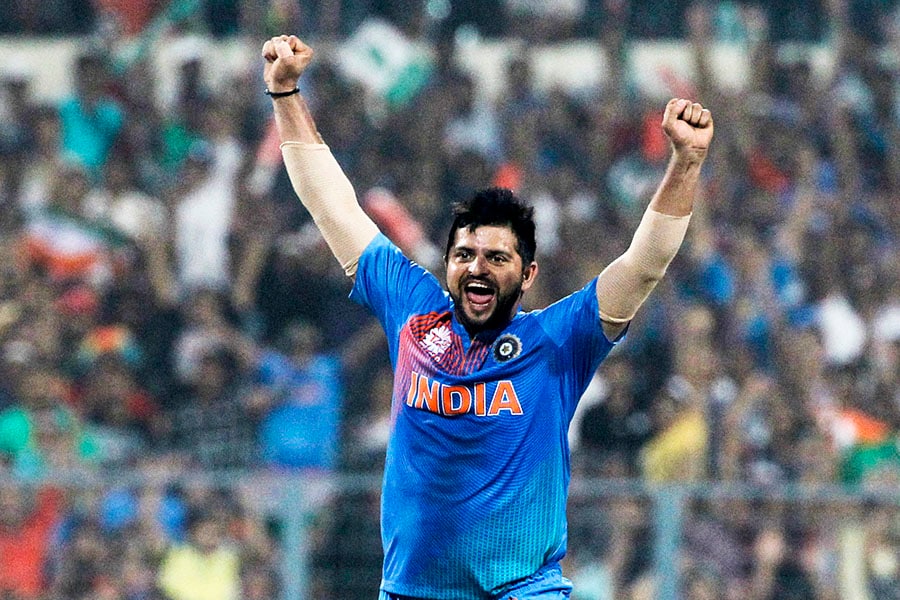
Stay on and finish the game: Suresh Raina's advice to India's T20 team
As India begins its campaign against Pakistan on October 23, Raina, a T20 expert during his playing days, feels Hardik Pandya and Surya Kumar Yadav will hold the trump cards
 Suresh Raina celebrates taking the wicket of Sharjeel Khan of Pakistan during the ICC World Twenty20 India 2016 match between Pakistan and India at Eden Gardens on March 19, 2016 in Kolkata, India. Image: Vivek Prakash-ICC/ICC via Getty Images
Suresh Raina celebrates taking the wicket of Sharjeel Khan of Pakistan during the ICC World Twenty20 India 2016 match between Pakistan and India at Eden Gardens on March 19, 2016 in Kolkata, India. Image: Vivek Prakash-ICC/ICC via Getty Images
With his prolific scoring and electric fielding, Suresh Raina was a master of the shorter format, be it for the national team or his IPL side Chennai Super Kings. The first Indian batter to score a century in all formats, Raina may not be remembered as much for those hundreds as he would be for smaller contributions down the order that swung the game. Having announced his retirement earlier this year, the southpaw is now engaged with the Gracia Raina Foundation, an NGO he set up along with his wife, and his family that, he says, had taken a backseat during his playing years. In Mumbai as the ambassador of booking.com, the official accommodation partner of the ICC Men’s T20 World Cup, the southpaw sat down for a chat with Forbes India. Edited excerpts:
Q. You recently announced your retirement from cricket. What plans do you have lined up for the second innings?
Spending time with my family, my wife and my kids. Doing a lot of NGO work with the Gracia Raina Foundation. When I was young, I didn't spend time with my family, especially with my parents, because I went to boarding school in Lucknow in 1998. Now that I have some time on my hand, I want to spend it with my family. My father recently passed away, so I'm looking after my mom now. I’m also enjoying dropping my daughter to school and my son to playschool.
Q. Given how chock-a-block the cricket calendar is currently, how does a modern cricketer perform to the best of their abilities?
Earlier too. There used to be Tests, ODIs, and T20s, and we would play domestic cricket as well. It all comes down to time management and what your priorities are. You need to switch on and off at the right time. If you do that, you can easily play for 10-12 years.








